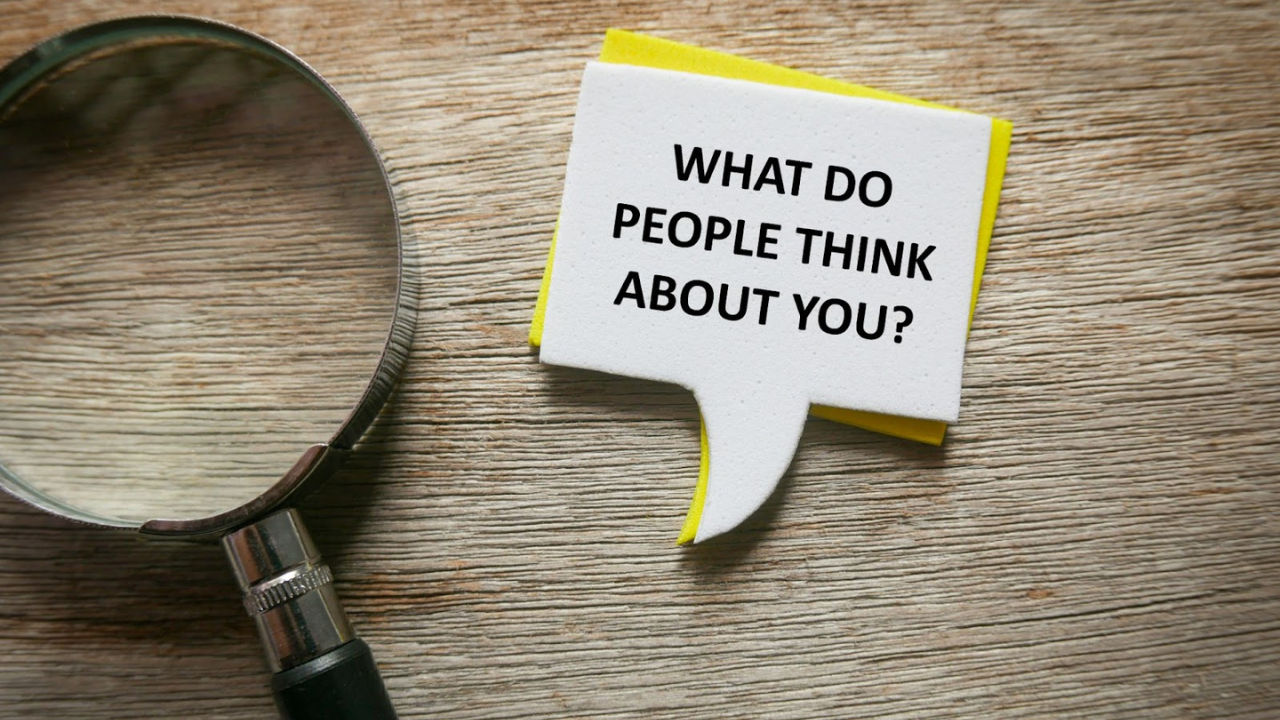Do you have FOPO (Fear of Other People's Opinions)?

True confession: Sometimes I care too much about what other people think.
There, I said it. I know I teach this stuff, but I’d be lying to you if I said that I have some superhuman power to stand strong in my own confidence and self-worth all the time, not caring a bit what others think about me.
But often I care too much. I care about what you think about me. I care about what my clients think. I care about what my husband and my kids and my family back in Illinois think. I worry about other people’s opinions of me, despite my best efforts. I work on this, but I’ve got to tell you - it’s tough.
These aren’t new feelings - they go back a long time.
Deep inside, there’s still the seventh-grade version of me who remembers the eighth-grade girls making fun of my socks. (I mean, really, who makes fun of the socks someone wears? But middle-school girls are brutal.)
Or the high school version of me that remembers being made fun of at the year-end awards ceremony (the girls behind me kicked the back of my metal folding chair every time I got an award). I still recall hoping that I wouldn’t get any more awards that evening because I was self-conscious and on the verge of tears, and I just didn’t want my chair kicked one more time.
I wanted those girls to accept me. I cared about their opinions of me.
And these feelings don’t stop just because we graduate from high school (or college or law school), do they? We somehow hope that the older we get, the less we will worry about what other people think of us. But it rarely works out that way.
In our hyper-connected world, where a single social media post can feel like it's under a global microscope (PS: it’s not), it's no wonder that the “fear of other people's opinions”, or “FOPO”, is on the rise. This kind of worry can really throw a wrench in the works, messing with everything from your daily choices to your big career moves.
FOPO isn't new by any means. Our social wiring dates back to the dawn of time. Human beings have always been afraid of social exclusion. Our need for social approval is ancient; it's wired into our DNA for survival in a community. Being left out “in the cold” could literally mean being defenseless against the elements, predators, or other hazards. No wonder we are hard-wired to care about what other people think and about belonging to the group - whatever group that is.
FOPO impacts our well-being, and it can lead to stress, reduced self-esteem, and an overall decrease in life satisfaction. In our legal workplaces, FOPO can be particularly insidious, preventing individuals from taking risks, contributing ideas, or challenging inefficient practices, even though these behaviors are often essential for innovation and job performance. You might hold back on a brilliant idea or not speak up about something that seems “off” because, well, what if “they” judge you?
But you can fight back against FOPO, and here's how:
1. Know Yourself
Getting to know when FOPO hits you is a game-changer. Self-awareness is like a secret weapon; it helps you catch those moments when you're about to back down because of fear. A little bit of mindfulness or some journaling can go a long way in shining a light on those shadows. When you feel FOPO rise up, ask yourself: What triggered this feeling? Where does this stem from? What’s my real fear?
2. Vulnerability Is Gold
Brené Brown hits the nail on the head - owning your vulnerability is like finding treasure. It's about understanding that you can't please everyone and that's okay. When you get real and show your true self, ironically, that's when people connect with you the most.
3. Your Rules, Your Game
What does success look like for you? Create your own playbook and live by that. This is about setting your own standards and chasing after what you believe in, not what everyone else thinks is cool, right, laudable, or acceptable. You get to decide what you want, what you believe in, and the way you want to respond to life’s circumstances and the people around you.
4. Be Your Own Best Friend
Kristin Neff's idea of self-compassion is a lifesaver. Treat yourself with the same kindness you'd offer a friend. If you mess up, instead of a facepalm, how about a pat on the back for trying? Changing that inner chat from critic to cheerleader can really turn things around.
5. Skills Make You Untouchable
Here's the thing: when you're good at what you do, that confidence you build becomes your armor against FOPO. Keep learning, keep growing, and trust in your skills. That's when other people's opinions start to bounce off instead of sticking.
6. Choose Whose Opinions Matter to You
There are people in my life whose opinions matter to me. These are people I respect, who I know have my best interests at heart, and who I know will speak loving truth to me. I care what they think. I will listen to their opinions. (Never take the opinions of the sock-mockers or the chair-kickers into consideration. Their opinions don’t count.)
FOPO is more than just a modern-day buzzword. It's got history, stretching back to when a side-eye from someone in the tribe could mean trouble. Today, while it won't exile you from the village, it can still feel pretty rough.
But you've got this. With a bit of self-discovery, a dash of courage in showing your true colors, your own personalized definition of winning, a whole lot of self-kindness, and a commitment to getting better at your craft, you're ready to take on FOPO. It's not something you'll ditch overnight, but step by step, you'll get there.
You’ve got this!

